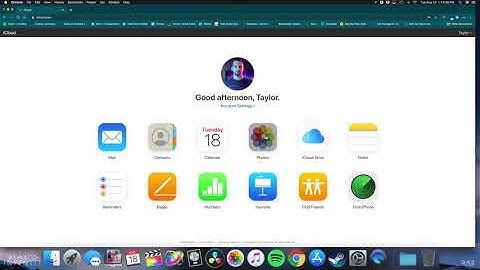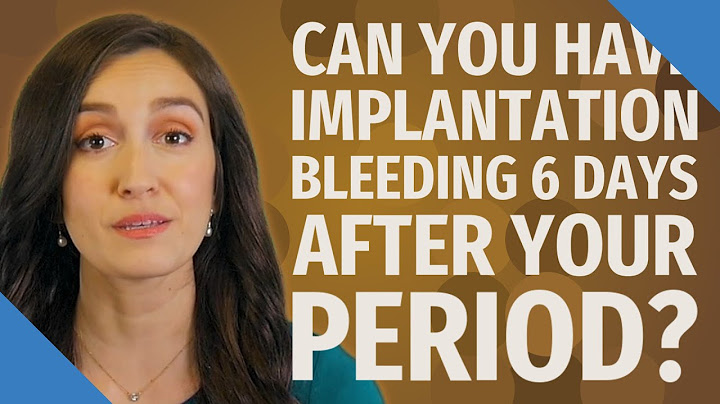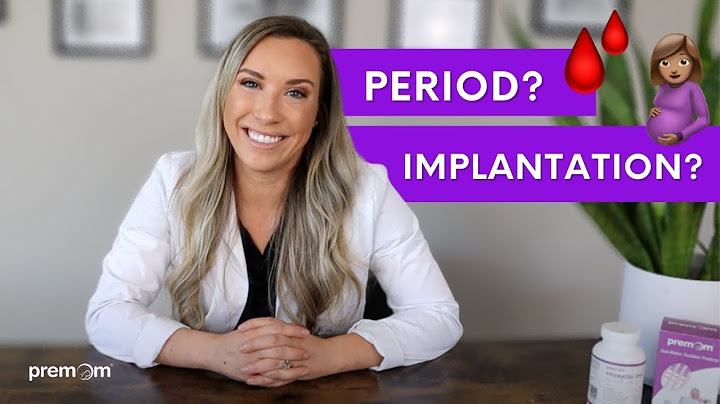Spotting is light vaginal bleeding that can happen when you're pregnant. It is a very common and tends to happen in early pregnancy, during the first trimester. Show
Spotting is usually red or pink in colour. It can also look brown, like old blood or like the bleeding at the start and end of your period. The amount of blood you lose when spotting is small – less than a light period bleed. Causes of spottingThe main causes of spotting during early pregnancy include:
Spotting can also be a sign that your pregnancy is not developing properly and may be a sign of a miscarriage or an ectopic pregnancy. Seeing your GP about spottingYour GP will ask you about your bleeding. They may ask you:
Be honest with your GP. There's nothing to be embarrassed about. Tell them about the colour, any clotting, and how heavy the bleeding was. Be as graphic as you need to. Remember, your GP sees people with personal issues like bleeding all the time. ExaminationYour GP may ask to give you a physical examination. This may include:
TestsYour doctor may also do some tests, such as a:
If you get a blood test done in your GP's surgery, it'll be sent to the lab in the hospital. ReferralWhat happens next depends on:
If your maternity hospital has an Early Pregnancy Unit (EPU), your GP may refer you to investigate the spotting. You may also need to go to your maternity hospital for an ultrasound scan. Sometimes they may refer you to the emergency department if you have severe stomach pains or heavy vaginal bleeding. EPUs and emergency departments are usually quite busy. Bring a magazine or a book to keep you busy. It's also good to bring a support person in case you receive bad or unexpected news. Be aware that your hospital may have COVID-19 restrictions on partners and support persons. Going to the maternity hospital about spottingYou may have tests and examinations at the hospital. This is to try and find out the cause of the bleeding. Pelvic or vaginal examinationsYour doctor or obstetrician might want to examine your cervix. This is to check the bleeding. It's normal to feel a little uneasy about this. Sometimes you can have a midwife there to support you. They may need to use a speculum. This is an instrument used to gently open your vagina so your doctor can see your cervix more easily. Your doctor may also ask your consent to do a vaginal examination. This is when they insert their gloved fingers into the vagina to see if there is any pain. It helps then to make a correct diagnosis. Blood testsYou may need to have a blood test, even if your GP did blood tests. Sometimes your doctor will want to compare your pregnancy hormone to the levels in the blood taken by your GP. Occasionally, blood tests are repeated 2 days later. The combined results can help with the correct diagnosis. Ultrasound scanAn ultrasound scan is often needed. In early pregnancy, this is usually a transvaginal ultrasound. It's the best way to get a clear picture of your baby. In the second and third trimesters, it'll usually be an abdominal ultrasound instead. What happens nextThis depends on what is causing the bleeding. You may need to be admitted to hospital for observation or treatment. Most women with spotting are discharged home. During pregnancy, your body changes. A lot. And in early pregnancy, you may deal with some pretty substantial hormonal shifts. Between mood swings, exhaustion and morning sickness, you might not feel your best. But there’s another symptom that can happen in early pregnancy that you might not be thinking about — bleeding or spotting. “Bleeding in early pregnancy happens to 20 to 40% of women,” says Deidre Heber, DO, OB-GYN at Geisinger. “Most of the time, it’s nothing to worry about.” Potential causes of first trimester bleedingBleeding during the first trimester can look different for everyone. The amount can range from light to heavy. For some, it can be intermittent. Others may have more constant bleeding or spotting. And it may or may not be painful. Here are a few things that might be behind it. Implantation bleedingEarly in pregnancy (sometimes before you know you’re pregnant), you may have some spotting when your period is due. This common occurrence is called implantation bleeding. “It happens between 6 and 12 days after conception as the fertilized egg implants into your uterus,” Dr. Heber says. This bleeding is typically light and may last for a few days. Cervical changesDuring pregnancy, there’s increased blood flow to your cervix. Having sex or getting a Pap smear, which cause contact with the cervix, can trigger light bleeding. Other cervical changes that can trigger bleeding include:
HormonesIn the early weeks of pregnancy, your body starts making the hormones you need to sustain a pregnancy. This change can cause your progestin levels to drop. That drop may lead to spotting or light bleeding. MiscarriageSince miscarriages are most common during the first trimester, worrying about bleeding is normal. Light bleeding or spotting doesn’t automatically mean you’re miscarrying. But if your bleeding is heavy, bright red or you’re passing clots and in pain, contact your healthcare provider. They can explain next steps. Most women who miscarry go on to have healthy pregnancies. But having a miscarriage is a loss that families may need help handling. Don’t rush the grieving process, and find a support group or counselor if you feel you need it. Ectopic pregnancyAn ectopic pregnancy happens when a fertilized egg implants outside the uterus, like in your fallopian tube. When that happens, it can lead to heavy bleeding, pain and other serious symptoms. “An ectopic pregnancy is an emergency,” says Dr. Heber. “If you have symptoms, contact your provider immediately.” When to call the doctor about bleedingCall 911 or go to the nearest emergency room if you have any of these symptoms:
If you’re pregnant and bleeding heavily, don’t use a tampon. Wear a pad instead. “Doctors need to know how much you’re bleeding to gauge the severity,” says Dr. Heber. And if you’re passing tissue, consider bringing it in for testing. Your doctor may use an ultrasound to determine the cause of your bleeding. Once they find the cause, they’ll work with you on a treatment plan. Healthy parent, healthy babyBuilding good habits now can help you have the healthiest pregnancy possible. Dr. Heber makes these suggestions to help you (and your baby) feel your best.
Next steps:Meet Deidre Heber, DO What does normal 1st trimester spotting look like?Spotting is when you see a light or trace amount of pink, red, or dark brown (rust-colored) blood. You may notice spotting when you use the restroom or see a few drops of blood on your underwear. It will be lighter than your menstrual period, and there won't be enough blood to cover a panty liner.
How long does spotting last in early pregnancy?Only about a third of pregnant women experience implantation bleeding after they get pregnant, but it's considered a normal symptom of pregnancy. In most cases, implantation spotting only lasts from a few hours to a couple days, but some women report having implantation spotting for up to seven days.
Is spotting in first trimester OK?It's normal to have some spotting or bleeding early in pregnancy. Bleeding or spotting in the first trimester may not be a problem.
What kind of spotting is OK during pregnancy?In early pregnancy, you might get some harmless light bleeding, called "spotting". This is when the developing embryo plants itself in the wall of your womb. This type of bleeding often happens around the time your period would have been due.
|

Related Posts
Advertising
LATEST NEWS
Advertising
Populer
Advertising
About

Copyright © 2024 kemunculan Inc.


















